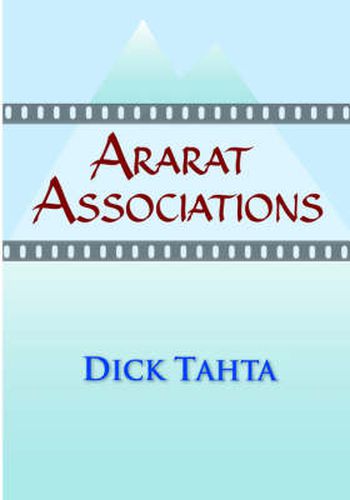Readings Newsletter
Become a Readings Member to make your shopping experience even easier.
Sign in or sign up for free!
You’re not far away from qualifying for FREE standard shipping within Australia
You’ve qualified for FREE standard shipping within Australia
The cart is loading…






This title is printed to order. This book may have been self-published. If so, we cannot guarantee the quality of the content. In the main most books will have gone through the editing process however some may not. We therefore suggest that you be aware of this before ordering this book. If in doubt check either the author or publisher’s details as we are unable to accept any returns unless they are faulty. Please contact us if you have any questions.
When he first saw Atom Egoyan’s film, Ararat, Dick Tahta was intrigued by the many associations it summoned up for him. The film is crammed with brief conversations and scenes that linked with memories of his childhood in a small Armenian community in Manchester in the nineteen-thirties and with the various aspects of Armenian culture that are - as in any immigrant community - carefully nourished by Armenians all over the world. Above all, the film delicately raises the issue of what later generations have made of the terrible experiences of their ancestors in the last years of the Ottoman Empire. As well as giving a penetrating insight into Egoyan’s film, Tahta offers some fascinating interpretations of Armenian history, religion, language and literature. His digressions into youthful memories, family history and his own travels through Eastern Anatolia, give this book a warm and personal feel. Dick Tahta was born in Manchester, of parents who had survived the events of 1915. They were keen for their children to have an English education but made sure that they spoke Armenian at home. As a second-generation immigrant, he was interested (like some of the characters in the film) in the nature of identity and its definition by criteria other than ethnicity. He raised four children with his late wife Hilary; he was a mathematics teacher and then a university lecturer. Now he is retired and is a widower and grandfather.
$9.00 standard shipping within Australia
FREE standard shipping within Australia for orders over $100.00
Express & International shipping calculated at checkout
This title is printed to order. This book may have been self-published. If so, we cannot guarantee the quality of the content. In the main most books will have gone through the editing process however some may not. We therefore suggest that you be aware of this before ordering this book. If in doubt check either the author or publisher’s details as we are unable to accept any returns unless they are faulty. Please contact us if you have any questions.
When he first saw Atom Egoyan’s film, Ararat, Dick Tahta was intrigued by the many associations it summoned up for him. The film is crammed with brief conversations and scenes that linked with memories of his childhood in a small Armenian community in Manchester in the nineteen-thirties and with the various aspects of Armenian culture that are - as in any immigrant community - carefully nourished by Armenians all over the world. Above all, the film delicately raises the issue of what later generations have made of the terrible experiences of their ancestors in the last years of the Ottoman Empire. As well as giving a penetrating insight into Egoyan’s film, Tahta offers some fascinating interpretations of Armenian history, religion, language and literature. His digressions into youthful memories, family history and his own travels through Eastern Anatolia, give this book a warm and personal feel. Dick Tahta was born in Manchester, of parents who had survived the events of 1915. They were keen for their children to have an English education but made sure that they spoke Armenian at home. As a second-generation immigrant, he was interested (like some of the characters in the film) in the nature of identity and its definition by criteria other than ethnicity. He raised four children with his late wife Hilary; he was a mathematics teacher and then a university lecturer. Now he is retired and is a widower and grandfather.